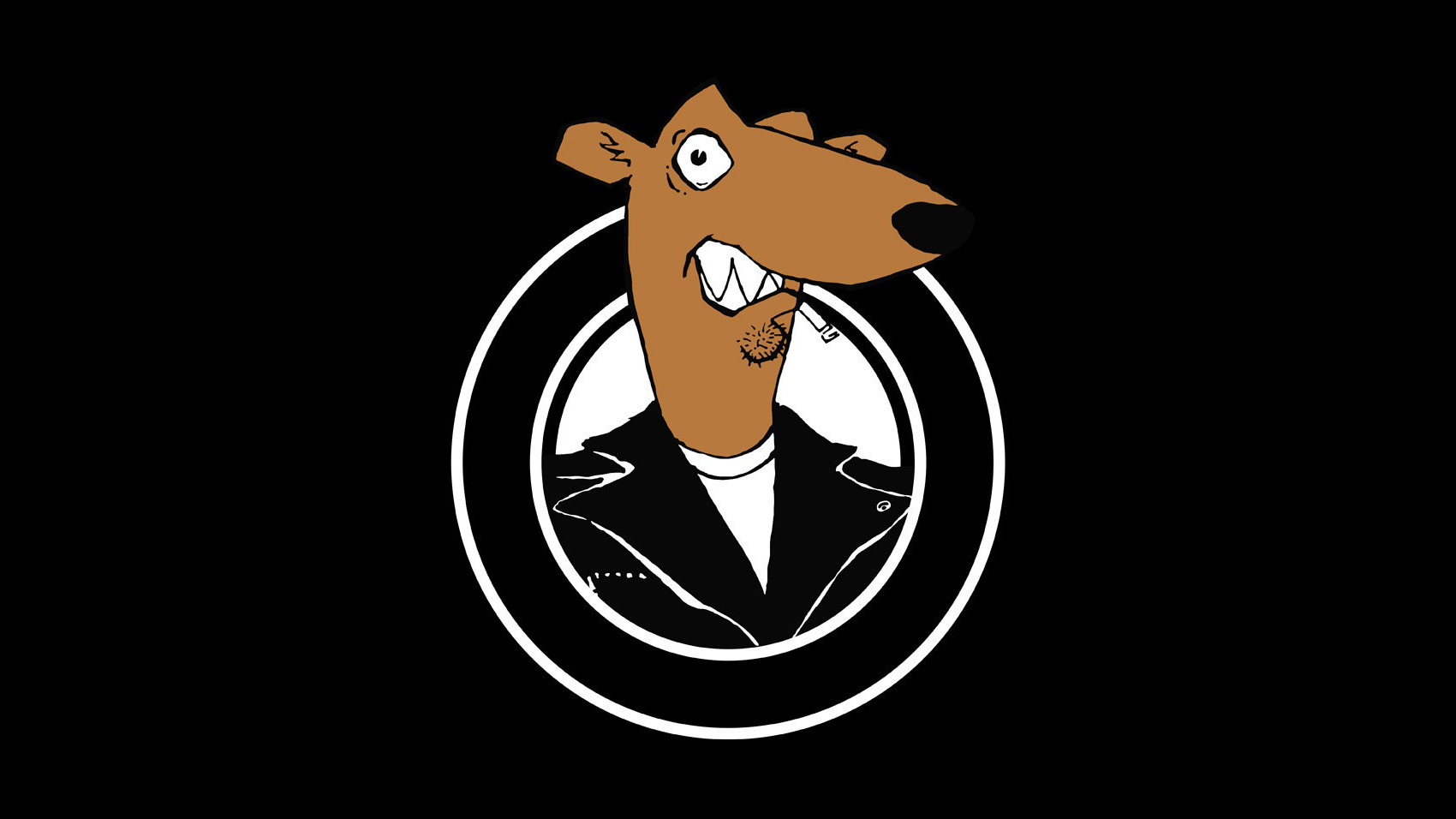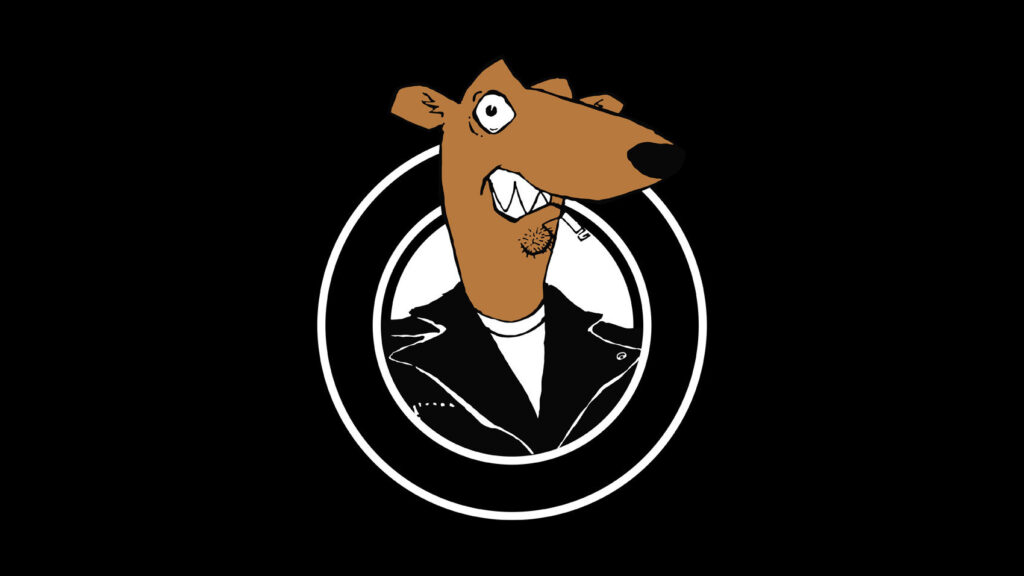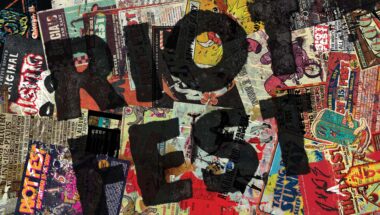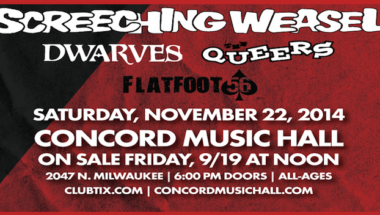
This year is the 30th anniversary of Screeching Weasel being a band. We were lucky enough to sit down with Ben Weasel last week and talk a little bit about the history of the band, what has changed in how he finds inspiration for songs, and how the songs get out there.
Screeching Weasel play their 30th Anniversary show in Chicago on November 4th at Concord Music Hall with Bowling For Soup and The Ataris. Tickets available here.
Buck: So, 30 years of Screeching Weasel, that’s awesome. It’s really impressive. When you first started, did you ever think that the band would have this kind of longevity?
Ben Weasel: No. I mean, I started the band when I was 18 so I don’t know how much an 18-year-old thinks about the future. I think for me, it was just something that broke up the monotony of daily life and it was something to look forward to other than working all week as I did when I started the band. Working all week in a warehouse 9-5 or 8-4… That was just awful! It wasn’t the physical work. The physical work was actually kind of exhilarating, but the mental… It just did something to me mentally and spiritually where all I wanted to do was come home, drink beer, watch TV, and go to bed. It just kind of makes you dull-witted. Or it did for me, anyway. So to have a band that you could go and practice with and make records and play shows on the weekend, it was like a vacation from that life. At 18, that was all I cared about. It was just having something that made life worth living.
Buck: Fast-forward 30 years, how has finding inspiration and topics for writing changed over the course of your career?
Ben: For 10 years or so, I’ve been much more into writing a narrative, a story-based kind of way, than I ever was before. That, to me, is more of a technical thing than maybe necessarily, directly an inspirational thing. But very loosely and as briefly as I can, I would say that when you start out you have the idea that, especially in punk and in rock music in general, authenticity is very important. There’s a heck of a lot of punk bands, majority of them walking around today, who don’t realize that their alleged authenticity is completely fabricated. So you get into this thing where the authenticity is so important and that means being “real”. But what does it mean to be real? I would write about this before we ever had anything like reality TV, but reality TV, everybody knows at this point, is the most fake. Whether it’s technically scripted or not, it’s not genuine. So is that reality? So for me, I did a lot of autobiographical writing, I did a little bit of confessional writing, but not as much as I think a lot of people think. There were plenty of cases where I was writing about fictional characters or writing about other people in a very, very vague kind of way, and people took that to mean that I was writing about myself because I was writing in the first person. But I did some of that. I did some autobiographical stuff, some confessional stuff, and what I’m getting at is that when you get into punk, you think that that is not only the most legitimately authentic thing to do but you get the idea that is the easiest thing to do. Once you’ve been doing it for a while, you realize it’s actually the toughest thing to do, or to do well. So I began to gravitate towards more universal themes, and I think that to the extent people like the old stuff, they like it because in spite of myself, I managed to strike some chords or get some stuff in there that was universal even though I was stepping on my own dick half the time to get there.
Now, I’m much more conscious, and I believe very strongly, that you can actually get to a more authentic and universal truth writing fiction than you can by writing confessionally or autobiographically. So, that’s been really my main interest now, kind of isolating and identifying themes that get the creative imagination going and then going from there. From the old days, you could go and say okay, “ I have my shitty job” or “I’ve got relationship problems with my girlfriend or whoever”, and when you’re young, you’ve got a lot of energy, everything’s new to you, so you can get like 10 songs out of a relatively small amount of material. That’s totally cool but these days I don’t really write that way. These days, I write in a way where I have certain thematic interests. Like, on my last album, Baby Fat, there’s a bunch of them, but one that keeps popping up in everything I’ve been doing lately: it’s the idea of the body in relationship to the soul and the importance of the body in that relationship and how it’s under-stressed in the world today in our culture. I’m also very interested in the Judeo-Christian idea of idolatry and how that can be applied and you can come up with some interesting story ideas from looking at that, again, how it plays out in a secular world, not in a religious context. I got really into these Greek tragedies a couple years ago, and if you and read Euripedes, he was really speaking out against the religious orthodoxy of his time. But the reason people would get angry at him was because he would take these ideas and bring them fictionally to their logical conclusion. So these plays like the Bacchae that really asked “What if these gods that we talk about were actually real? What would the implications of that be?” That’s the kind of stuff I’m talking about thematically. I’m not coming up with anything new at all. In fact, I’m usually going to pretty old sources for some of the stuff that I’m thinking of, but I find that, for me, as rich a treasure trove, if you will, for material as were the day-to-day events of my life when I was 18, 19, 20 years old.
Buck: Speaking of song subject matter, let’s talk Major Label Debut. The EP includes topics like racism, Internet, production of CD’s, the topic of doing things DIY. In the song “Compact Disc” you say, “No one cares that a record sounds better because you just can’t buy them so it just doesn’t matter at all.” How do you feel, all these years later, knowing that vinyl has made a comeback and CDs will soon be a thing of the past?
Ben: Well, I think CD’s are already a thing of the past. I did not necessarily feel as strongly about that as the songs sang. You know the song was entirely based on the conceit that the album was pressed on vinyl. Most people at that time, in ‘97, would have been listening to it on CD. It was kind of an inside joke. Like, here’s a song about CD’s that you’re listening to on a CD. And so it made a pretty strident case for something I personally didn’t care that much about. Like even now, I listen to the overwhelming majority of my music through an iPod that is hooked up to my stereo. I’ve got a good receiver and speakers but I’m listening to MP3s, and I don’t care. Every once in a while, I’ll put on a vinyl record, and I have a really good turntable and I don’t think records sound better for the most part. I do think it’s funny though, because when you write, the mistake is when you write about anything topical whatsoever, it’s going to date you. It’s funny cause I was just writing and talking with someone, I just wrote a screenplay, and in one of the scenes that subject comes up where it’s a band that is always writing about topical things and it’s so badly dated that people can’t even reference it anymore. Like the 2008 election, someone called “Joe the Plumber.” I don’t even know who even remembers who Joe the Plumber is! And so, they’re kind of forced into this situation where they have to try and sell him as a metaphor because really they’ve boxed themselves into a corner. And I’ve done that a few times myself. It’s one of the dangers of writing about really specific topical things. It’s going to be old news by the time the record is out in most cases.
Buck: These days most people are getting their music from Spotify, Amazon, iTunes etc. Does knowing those services exist change your approach to distribution. Do you even focus on that or is that whatever the label wants to do with it?
Ben: I have to focus on it because I own most of my catalogue. Now some of the Fat releases, and even the last Fat release I own. When it earned money back and the rights revert back to me. Fat owns all of the releases but the last one. They own them, but the rest of my releases I own so I have to be aware of that stuff. I don’t put my stuff on Spotify because they pay so little. But it’s great for the fans, theoretically. I have a Netflix subscription, and it’s awesome, but I totally appreciate and respect any filmmaker who doesn’t want their films on it because it has to pay terribly. Economically, there’s just no way for it to work out to where you can get paid a fair, reasonable amount of money for it, so there’s this unsustainable economic model that’s being created and nobody will admit it’s unsustainable. What kills me is that the labels and musicians throw around blame, but we’re the ones to blame! You can’t blame fans. What are the fans supposed to do? Say “No no no! I’m not going to take advantage of this system?” It’s out there, man, and you gave it legitimacy. I would always say to the record labels “I’m not gonna do it” and they’d say “Well c’mon, man, it s better than nothing,” and I would say “No, fuck you, it’s worse than nothing because you’re creating this entrenched system that you’ll never get out of!” This is worse than nothing if you don’t fight it. We’re all going to be fucked and that’s where we are now. So I don’t begrudge anybody that wants to hear our music on Spotify. My stuff might not be worth a ton, but it’s worth more than what they’re willing to pay.
Buck: Like the .004 cents or whatever you’re going to get per stream.
Ben: That’s right, and the other thing is that if nothing costs anything then that’s the value people are going give it. And that’s what happened. And it’s happening to live music too. People don’t value music the way they used to, and that is hurting the listener more than anybody. Nobody, and I include myself , nobody gives anything a fair chance because there’s always something else to turn to. If it doesn’t blow you away in 30 seconds or 2 songs, there’s no reason to keep listening because you could listen to music for the rest of your fucking life, nothing but new music! There have been scientific studies done about this: too many choices actually make your life worse. It’s a little counter-intuitive, but it’s actually been proven scientifically that people actually are unhappier and more stressed out when they have a world of choices. When you limit the number of choices, people are actually happier. A good example of that is what my wife and I did, which a lot of people have done, which is to cut the cord and get rid of cable. We get rid of cable and I’m like “What a waste of fucking money that was, and I wasn’t watching shit. I was paying for the nose for this and I didn’t want it anyway”.
I didn’t have a choice when I was a kid. If I bought a record, and I didn’t like, by God I listened to that record over and over and over and I fucking tried to find something to like about it because I spent five bucks on it and five bucks was a lot of money to me because I was a kid. Music has become so disposable because of that, and then the other things really factored into it is that there hasn’t been a genuine rock culture since the 70’s. There have been a couple of generations of people who grew up without that sense of rock ‘n’ roll being a life-changing force and if you weren’t around in the 70’s, you didn’t grow up with that, it’s hard to explain, but even relatively mainstream bands back in the 70’s, like KISS who were huge, or Aerosmith or whatever… If you were a fan of bands like those, that marked you as a certain type of person. You really were kind of an outsider in society and it meant that you kind of believed in certain things. Really vague, general things, but you were a rock ‘n’ roller. That died in the 80’s for a lot of reasons. Very poppy productions, starting with records like Back in Black and some of the Judas Priest records, Def Leppard, all the productions started getting more mainstream and poppy. But also what happened, and it happened in punk as well, that a sort of open-mindedness about music had all these positive effects, but it also had the one big negative effect of making rock just another genre. It wasn’t anything special, there was no cultural context that set a person apart for being into it, and the reaction to that was punk. And then of course, the same thing happened to punk. So now, it wouldn’t be strange to see the captain of the football team or the cheerleading squad wearing a Bad Religion shirt.
Buck: Yeah. Everybody and their mother has a Ramones shirt. Justin Bieber wears a Ramones shirt. It’s not punk anymore.
Ben: You see 5-year-old kids with mohawks. The kind of stuff that would get your ass kicked in the 80’s is mainstream now. Nothing wrong with that, I’m not mocking it, I’m just saying, it’s part of what has contributed to the devaluing of music. It’s just sort of interesting to me from a sociological perspective. But from the perspective of a musician, it’s disheartening because the hardest thing to do is compete for somebody’s attention. In rock music we don’t compete against each other. Some of us feel like we do, but we really don’t. The competition is for space in the consciousness of the music listener and that is getting harder and harder to attain.



Comments are closed.